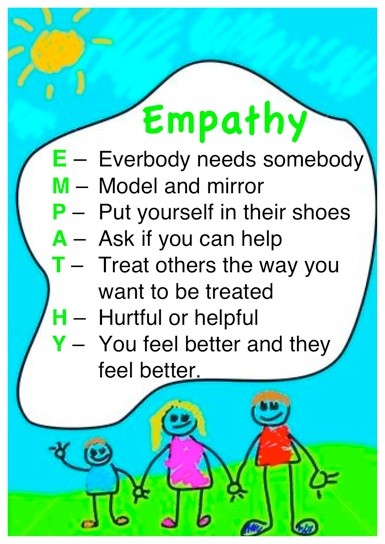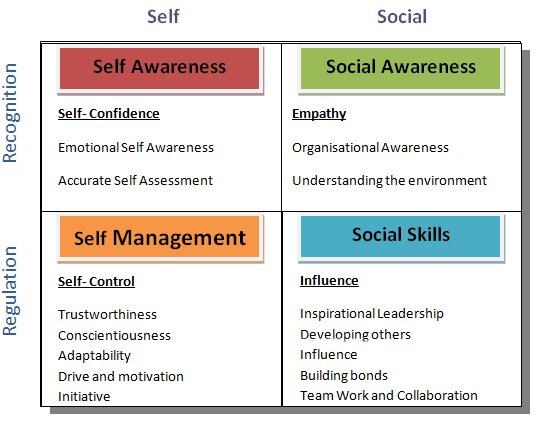Word Of the Week #600: Calm
February 4, 2016 by Susan Clarke · Comments Off on Word Of the Week #600: Calm
Calm – under control.
How much stress do you experience each day? How does it affect you? Are you able to stay calm and in control when a stressful situation arises at work?
This week features excerpts from “How Successful People Stay Calm,” written by Travis Bradberry. He writes, “The ability to manage your emotions and remain calm under pressure has a direct link to your performance. TalentSmart has conducted research with more than a million people, and we’ve found that 90% of top performers are skilled at managing their emotions in times of stress in order to remain calm and in control.
Some startling research summaries explore the havoc stress can wreak on one’s physical and mental health, which found that prolonged stress causes degeneration in the area of the brain responsible for self-control. The tricky thing about stress (and the anxiety that comes with it) is that it’s an absolutely necessary emotion. Our brains are wired such that it’s difficult to take action until we feel at least some level of this emotional state. In fact, performance peaks under the heightened activation that comes with moderate levels of stress. As long as the stress isn’t prolonged, it’s harmless.
Besides increasing your risk of heart disease, depression, and obesity, stress decreases your cognitive performance. Fortunately, though, unless a lion is chasing you, the bulk of your stress is subjective and under your control. Top performers have well-honed coping strategies that they employ under stressful circumstances. This lowers their stress levels regardless of what’s happening in their environment, ensuring that the stress they experience is intermittent and not prolonged.
While I’ve run across numerous effective strategies that successful people employ when faced with stress, what follows are ten of the best. Some of these strategies may seem obvious, but the real challenge lies in recognizing when you need to use them and having the wherewithal to actually do so in spite of your stress.
- They Appreciate What They Have
Taking time to contemplate what you’re grateful for isn’t merely the “right” thing to do. It also improves your mood, because it reduces the stress hormone cortisol by 23%. Research conducted at the University of California, Davis found that people who worked daily to cultivate an attitude of gratitude experienced improved mood, energy, and physical well-being. It’s likely that lower levels of cortisol played a major role in this.
I will share the other nine strategies in the next two WOW’s. This week’s focus is all about staying calm. Do you have any effective strategies for dealing with stress? How good are you at managing your emotions? How often do you have an attitude of gratitude?
I LOVE feedback! Join my Facebook community on my FUN-damentals Fan Page.
PS We left San Francisco January 25th on a “slow boat to Singapore.” I am posting our FUN-travel there too.
Word Of the Week #599: Potential
January 27, 2016 by Susan Clarke · Comments Off on Word Of the Week #599: Potential
Potential – having the capacity to become or develop into something in the future.
Do you want to achieve more at work? Do you know what motivates you to perform at your best? How about the people you work with and live with?
This week we follow up on Jennifer Davies article in the San Diego UT Business section titled, “The bottom line on emotional intelligence.”
To recap: Trevor Blair, director of executive search for Manpower San Diego, a local employment agency, says, “Some business types continue to think of EQ as some fluffy, new-age mumbo that has no place in a fast-paced company fighting to survive in a competitive marketplace, the smart companies are realizing its true value.
The fact is no leader can reach their potential with it.
In order to understand other people and what motivates them to perform at their best, you first have to understand yourself.”
But EQ can be about more than leadership potential.
It can also translate into real dollars according to Travis Bradberry, the author of Emotional Intelligence 2.0.
“People with a high degree of emotional intelligence make more money – an average of $29,000 more per year than people with a low degree of emotional intelligence,” he writes.
“The link between emotional intelligence and earnings is so direct that every point increase in emotional intelligence adds $1,300 to an annual salary.”
The good news is that unlike IQ – which is considered to be static and unchangeable no matter how much you study or work to improve it – emotional intelligence can be boosted.
This week’s focus is on reaching your potential. Would you like to achieve more of a leadership role at work? Would you like to make more money? Would you like to know how to improve and boost your Emotional Intelligence?
I LOVE feedback! Join my Facebook community on my FUN-damentals Fan Page.
Word Of the Week #598: Savvy
January 20, 2016 by Susan Clarke · Comments Off on Word Of the Week #598: Savvy
Savvy – having or showing a clever awareness and resourcefulness; common sense.
How would you rate yourself on being savvy? How aware are you of your thoughts and feelings? How astute are you at sizing up situations at home and work?
Jennifer Davies, the assistant dean of external affairs for UCSD, contributes to the San Diego UT Business section. “The bottom line on emotional intelligence” is this week’s feature.
She writes. “You may be smart, but that may not be enough in today’s job market.
More companies are looking for those who are emotionally savvy as well.
Trevor Blair, director of executive search for Manpower San Diego, a local employment agency, said the importance of a high EQ, also known as emotional intelligence, cannot be understated, especially for “knowledge workers, millennials and members of the creative class, who simply don’t respond to old-school methods of motivation in the workplace.”
But what exactly is emotional intelligence?
Travis Bradberry, the author of Emotional Intelligence 2.0, has described it this way: “Emotional intelligence is the ‘something’ in each of us that is a bit intangible. It affects how we manage behavior, navigate social complexities and make personal decisions that achieve positive results.”
What’s even more interesting according to Bradberry, is that EQ might be more important than IQ – or intelligent quotient – as studies have found that “people with average IQs outperform those with the highest IQs 70 percent of the time.”
While Blair said some business types continue to think of EQ as some “fluffy, new-age mumbo that has no place in a fast-paced company fighting to survive in a competitive marketplace,” the smart companies are realizing its true value.
“The fact is no leader can reach their potential with it,” he said
This week’s focus is having more savvy. Would you like to achieve more positive results when you make personal decisions? How well are you at navigating social complexities and reading the feelings of others? Would you like to reach your full potential at work?
Stay tuned! In the next several weeks we’ll have more tips on how to boost your EQ.
I LOVE feedback! Join my Facebook community on my FUN-damentals Fan Page.
Word Of the Week #530: Relationship
October 2, 2014 by Susan Clarke · Comments Off on Word Of the Week #530: Relationship
Relationship – a state of connectedness between people (especially an emotional connection).
How well do you handle relationships at work? How good are you at reading your co-workers or staffs reactions or feelings? Would you say you are good at dealing with disputes?
This is the follow up to last week’s WOW and the final one from Daniel Goleman’s book on Emotional Intelligence. The 5th key quality needed is social or interpersonal intelligence. It is the ability to handle relationships, which in large part is, the ability to manage the emotions of others.
He writes, “Social intelligence allows us to connect with people quite smoothly, be astute about reading their reactions and feelings, lead and organize, and handle the disputes that are bound to flare up in any human activity.
The Four Components are:
- Organizing Groups – the essential skill of the leader, this involves initiating and coordination the efforts of a network of people. This is the talent seen in theater directors or producers, in military officers, and in effective heads organizations and units of all kinds.
- Negotiating Solutions – the talent of the mediator, preventing conflicts or resolving those that flare up. People who have this ability excel in deal making, arbitrating or mediating disputes; they might have a career in diplomacy, in law, or as middlemen or mangers of takeovers.
- Personal Connection – the art of relationship, easy to enter into an encounter or to recognize and respond fittingly to people’s feelings and concerns. Such people make good “team players,” dependable spouses, good friends or business partners; in the business world they do well as salespeople or managers, or can be excellent teachers.
- Social Analysis – being able to detect and have insights about people’s feelings, motives, and concerns. This knowledge of how others feel can lead to an easy intimacy or sense of rapport.
These people are the natural leaders and are the kind of people others like to be with because they are emotionally nourishing – they leave other people in a good mood, and evoke the comment, “What a pleasure to be around someone like that.”
This week’s focus is on your relationships. Would you say you are a good team player? Are you a natural leader? How good are you at negotiating solutions? Do you easily connect with people you meet? Are you a pleasure to be around?
I LOVE feedback! Join my Facebook community on my FUN-damentals Fan Page.
Word Of the Week #529: Empathy
September 25, 2014 by Susan Clarke · Comments Off on Word Of the Week #529: Empathy
Empathy – understanding and identifying with another person’s situation, feelings, thoughts, etc.
Is it easy or hard for you to show emotion? How good are you at recognizing emotions in others? Did you know that the 90% or more of an emotional message is nonverbal?
In Daniel Goleman’s book on Emotional Intelligence he identifies 5 key qualities needed. I have covered 3 of them in several of the past WOW’s. They are self-awareness, self-management and self-motivation. Today I will cover the 4th and that is the ability to recognize emotions in others.
He writes, “Empathy builds on self-awareness; the more open we are to our own emotions, the more skilled we will be in  reading feelings. People who have no idea what they feel themselves, are at a complete loss when it comes to knowing what anyone else around them is feeling. For all rapport, the root of caring, stems from emotional attunement, from the capacity for empathy.
reading feelings. People who have no idea what they feel themselves, are at a complete loss when it comes to knowing what anyone else around them is feeling. For all rapport, the root of caring, stems from emotional attunement, from the capacity for empathy.
The key to intuiting another’s feelings is in the ability to read nonverbal channels: tone of voice, gesture, facial expression, and the like. In tests with over 7,000 people the benefits of being able to read feelings from nonverbal cues included being better adjusted emotionally, more popular, more outgoing, and – perhaps not surprisingly – more sensitive. In general, women are better than men at this kind of empathy.
The roots of morality are to be found in empathy, since it is empathizing with – someone in pain, danger, or deprivation, say – and so sharing their distress that moves people to act to help them. By putting oneself in another’s place, leads people to follow certain moral principles.
This week’s focus is on empathy. Would you like to be more popular? How comfortable are you with showing your emotions? How good are you at reading other people’s feelings? How about identifying with another person’s situation?
I LOVE feedback! Join my Facebook community on my FUN-damentals Fan Page.




